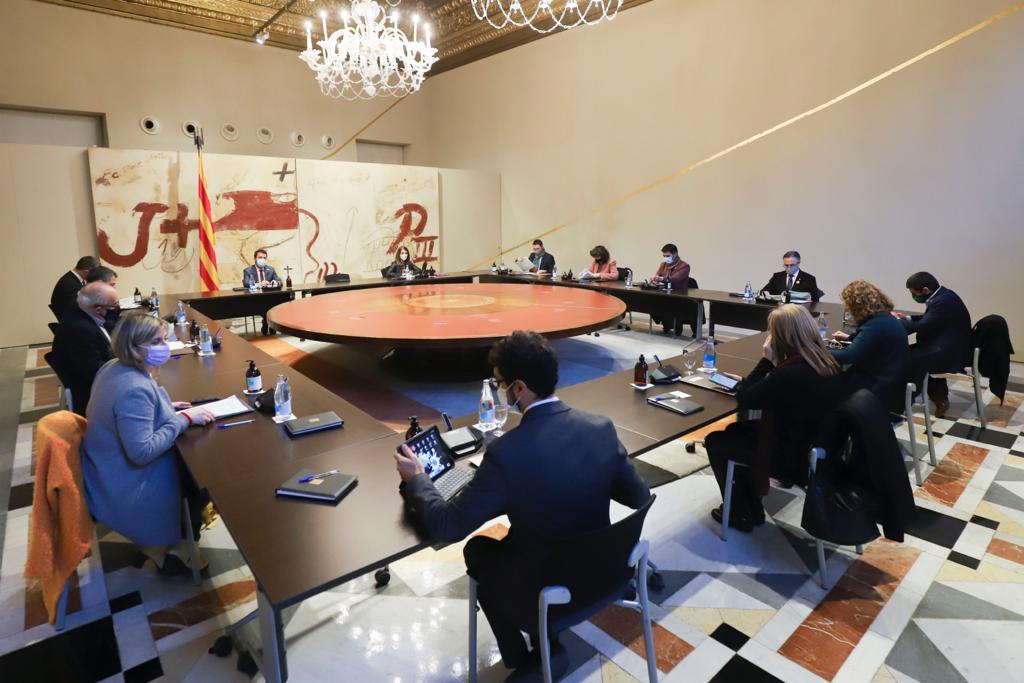The Catalan High Court of Justice’s (TSJC) notified that it will provisionally keep February 14th as election date, against the Catalan Government’s wishes. It commits itself to examine the merits of the matter in 18 days at the very most, starting on February 8th.
The decision will be published tomorrow. The court has nevertheless stated it intends to “keep the suspension of the 1/2021 decree, published on January 15th, by which the Catalan parliamentary elections that were to be held on February 14th are postponed due to the health crisis caused by the Covid-19 pandemic”.
This is just a preliminary step before a final decision is taken. On Tuesday the most urgent precautionary measures were examined and today the less urgent ones as well as the appeals and the reports submitted by the government and the public prosecutor’s office.
The debate about whether the Catalan government’s decree postponing the elections complies with legal provisions or not will not be examined until February 8th, in the midst of the electoral campaign. The campaign will start in eight days’ time, on January 29th.
Although the final decision was not taken today, and the electoral machinery of political parties will be on hold until February 8th, the court shortened the proceedings “for reasons of urgency”. In practice this means everything speeds up and there will be less time for each one of the parties, Government, public prosecutor’s office and plaintiffs. Instead of the eight days laid down by law to submit claims in writing there will be four at most, “so as to reach decision before February 8th” stated the High Court in a press release informing about the decision.
The key: a decree without date
While waiting to learn about the High Court’s underlying arguments for its decisions, which will be made public tomorrow, the parties are already preparing their written submissions. The court decided to apply precautionary measures pending the decisions on the merits of the matter, which requires a decision on whether the Government’s decree postponing the elections complies with legal provisions or not.
According to several sources the decree has “obvious deficiencies”. The main one being it is not dated. The High Court does not even mention the two dates, February 14th or May 30th. In its decree the Government did not include an alternative date and that is crucial for the discussion in section five of the administrative court. The last part of the decree is the most difficult one to rule upon, and the one requiring a longer debate.
The campaign could start before a final decision is taken
Given that reaching a final court decision, on whether the elections can be postponed until May 30th or the February 14th date is kept, may take another three weeks, the Catalan government has no alternative other than reactivate the electoral machinery just in case. If plans for February 14th go ahead the electoral campaign would start on January 29th.
Already all of the people that will work at polling stations have been notified and printing of ballot papers and envelopes must start, to be sent in one single batch, as agreed by all parties.
According to the electoral process department, the total cost of elections will be €37.5M. Of these, €8M will guarantee health safety measures.
One eye on February 14th and the other on October 1st
Today all looked towards the High Court. All of Catalonia awaits a final decision on when parliamentary elections are to be held. Either in three weeks’ time, May 30th, or on any other date decided on by the court. Around 9am, as reported by Elnacional.cat a member of the Generalitat technical staff submitted the pleas to justify the needs to postpone the elections. The deadline finished at 10am when the seven judges of section five of the administrative court began examining the case.
The fact that a sentence was passed by the same court and on the same day has aroused suspicion. Nevertheless, it is worth recalling that one thing is a criminal court, which is the one that sentenced Solé, and another is the civil court, which is the one that examining the case of the Catalan election’s date.
Although not expected this morning, sources close to conseller Solé said to Elnacional.cat. that the sentence was “to be expected”. The defence will submit an appeal against the ban from public office due to disobedience. As in the case of president Torra, it will be the High Court which will have to issue a final decision on whether to maintain the sentence or change it. Until then, the ruling will not be firm.

